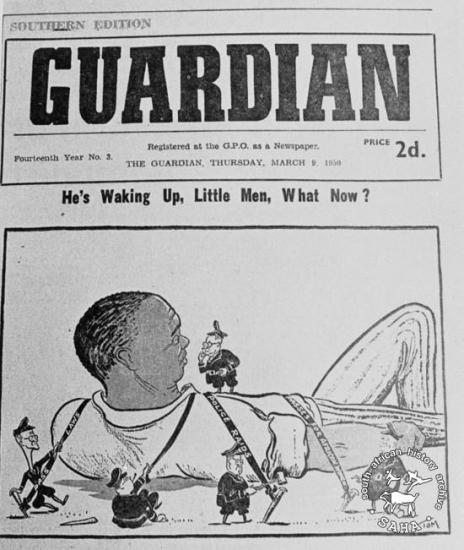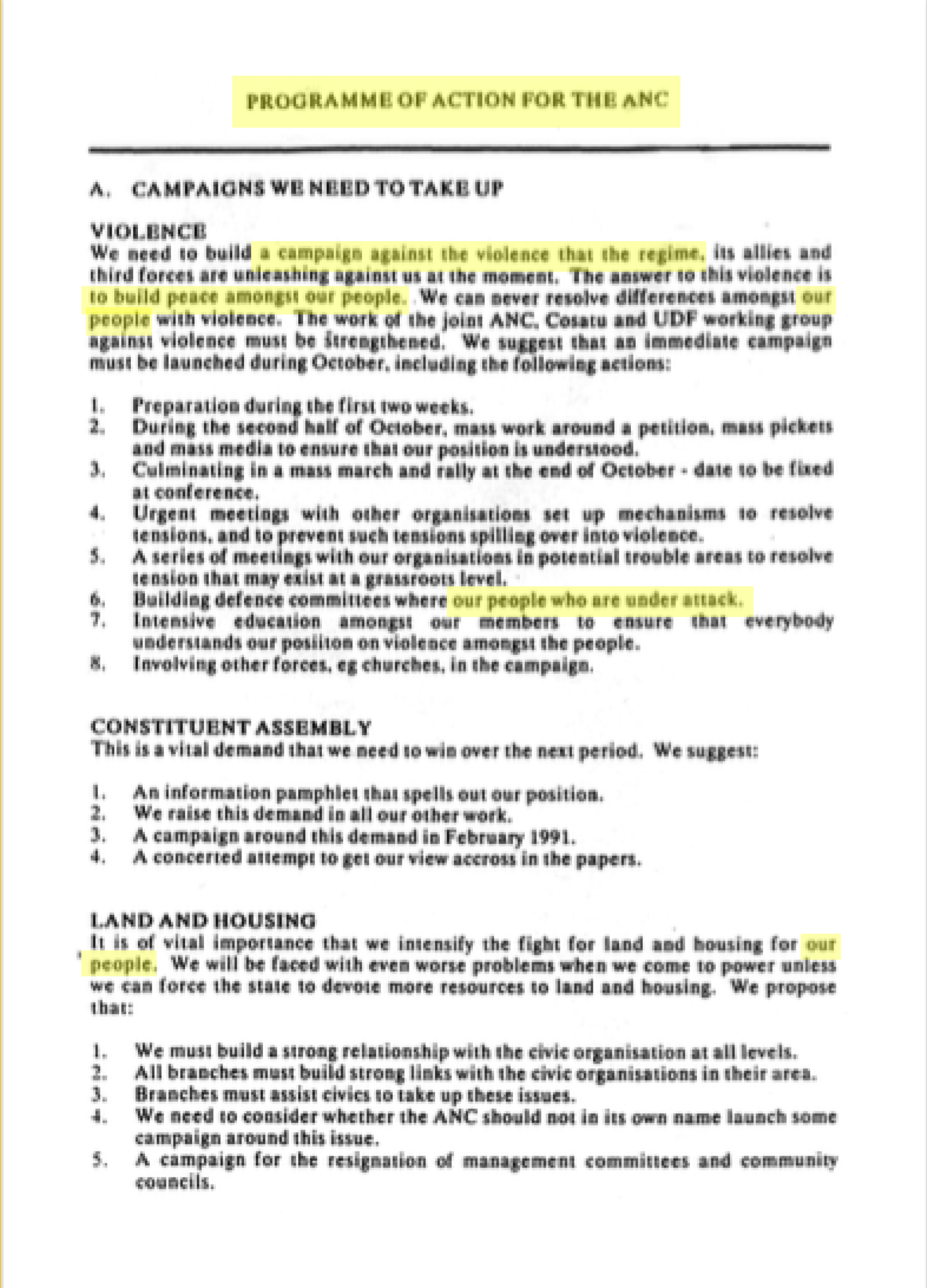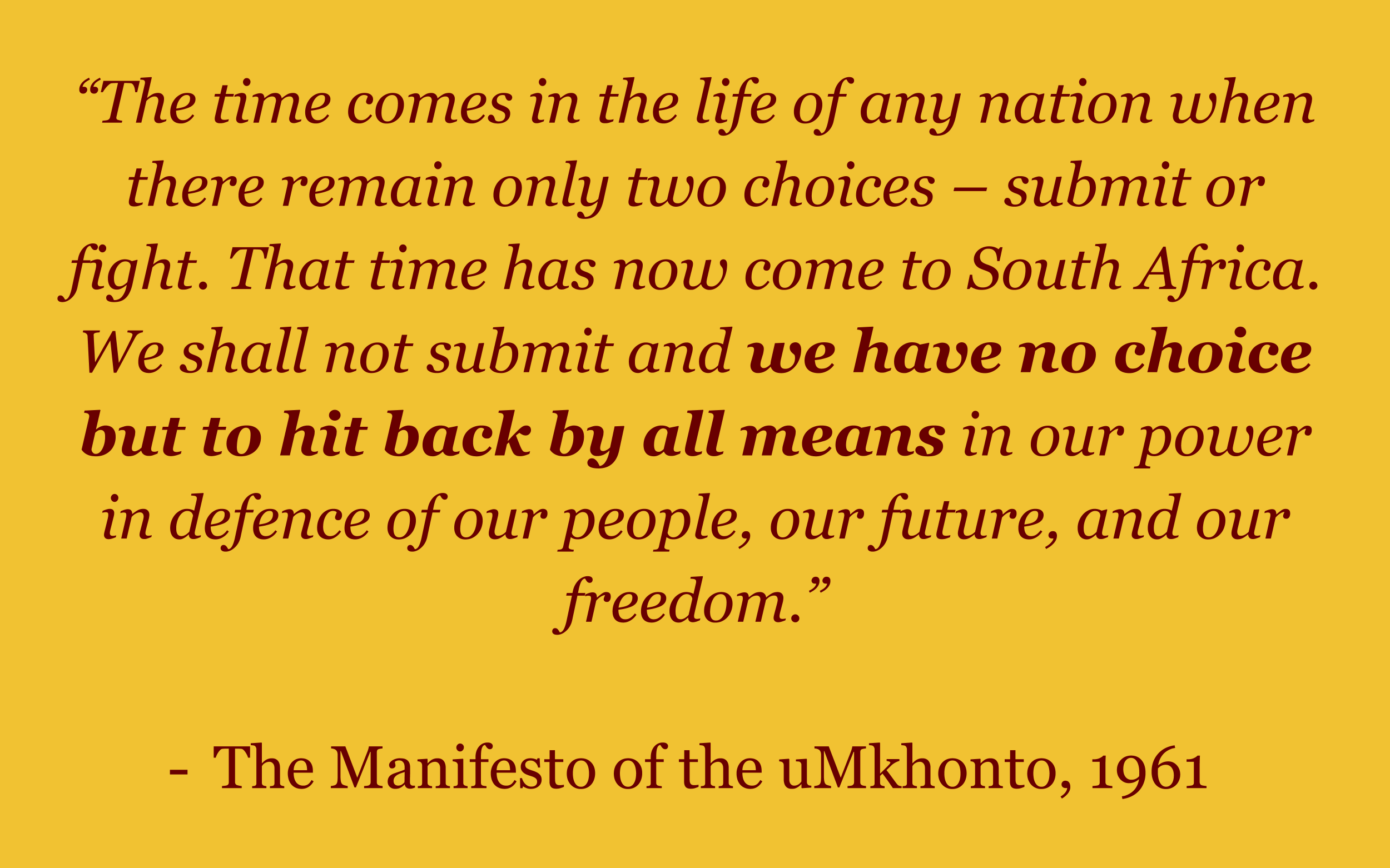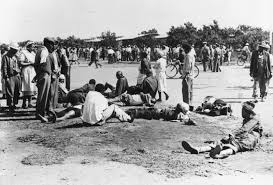The African National Congress is Founded
Prior to Tutu’s life, the fight against Apartheid first took shape in 1912 when the South African Native National Congress (SANNC), forerunner of the African National Congress (ANC), was founded, aiming to secure the rights of black South Africans by campaigning legally. The SANNC was largely unsuccessful but laid the groundwork for later movements.

An image of the SANNC delegation to Great Britain, who pleaded with the colonial overlords to allow for greater freedom of black South Africans. Courtesy of the ZAR Company
The ANC Adopts a Violent Approach
In 1944, the African National Congress Youth League (ANCYL) formed, claiming that the quagmire black South Africans were in was sparked by whites alone and called for physical retaliation through the Programme of Action (1949).

A newspaper cartoon depicting a black man strapped down. Courtesy of the Southern Edition

A document detailing the Programme of Action ensued by the ANC. Courtesy of the African National Congress

Many followers of the ANC reasoned that only a violent movement could lead to the end of Apartheid. Thus, a militant branch of the ANC formed- uMkhonto we Sizwe, “Spear of the Nation”- which orchestrated many bombings against white public facilities.

A list compiled by the Committee for South African War Resistance, which details bomb attacks carried about by the uMkhonto (abbreviated as MK in this document). Courtesy of COSAWR





